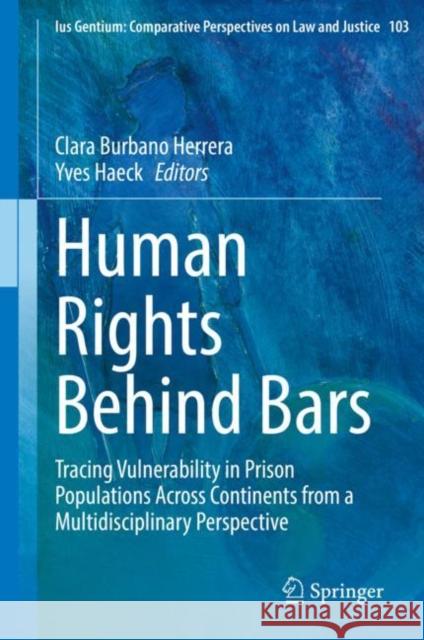Human Rights Behind Bars: Tracing Vulnerability in Prison Populations Across Continents from a Multidisciplinary Perspective » książka
Human Rights Behind Bars: Tracing Vulnerability in Prison Populations Across Continents from a Multidisciplinary Perspective
ISBN-13: 9783031114830 / Angielski / Twarda / 2022 / 355 str.
Human Rights Behind Bars: Tracing Vulnerability in Prison Populations Across Continents from a Multidisciplinary Perspective
ISBN-13: 9783031114830 / Angielski / Twarda / 2022 / 355 str.
(netto: 498,38 VAT: 5%)
Najniższa cena z 30 dni: 501,19
ok. 16-18 dni roboczych.
Darmowa dostawa!
This book brings together leading authorities from the fields of international human rights law, criminology, legal medicine, and political science with international human rights judges and UN experts to analyze the current situation of detainees in Europe, the Americas and Africa.This comprehensive volume offers a platform for reflecting on the complexity of the prison problem from a multidisciplinary perspective. The authors address detention-related issues with the aim of generating new ideas that contribute to both academic discussion and critical analysis. Academic dialogue across the globe provides insights into various national and international carceral systems and how they deal with human rights behind bars. At the same time, the critical comparison helps to identify basic needs and practices that can work in multiple settings.The contributors are respected experts and leading scholars in their fields, and each has pursued prison and human rights research over the last decades. However, this is the first time that they have come together in a multidisciplinary academic project.This book aims to stimulate diverse actors to imagine alternative ways of engaging with persons deprived of their liberty, in academia and in practice.
This book brings together leading authorities from the fields of international human rights law, criminology, legal medicine, and political science with international human rights judges and UN experts to analyze the current situation of detainees in Europe, the Americas and Africa.This comprehensive volume offers a platform for reflecting on the complexity of the prison problem from a multidisciplinary perspective. The authors address detention-related issues with the aim of generating new ideas that contribute to both academic discussion and critical analysis. Academic dialogue across the globe provides insights into various national and international carceral systems and how they deal with human rights behind bars. At the same time, the critical comparison helps to identify basic needs and practices that can work in multiple settings. The contributors are respected experts and leading scholars in their fields, and each has pursued prison and human rights research over the last decades. However, this is the first time that they have come together in a multidisciplinary academic project. This book aims to stimulate diverse actors to imagine alternative ways of engaging with persons deprived of their liberty, in academia and in practice.











